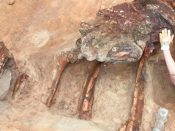Por Bruno Silva (International Iberian Nanotechnology Laboratory, Braga, Portugal).
Lipid-based nanoparticle systems such as liposomes, lipid-DNA complexes (i.e. lipoplexes), lipid-polymer-DNA complexes (lipopolyplexes) and cubosomes, hold the promise of becoming efficient drug and gene delivery systems for therapeutic applications [1]. Nevertheless, while many recent advances have led to special targeting functions and controlled release of the drugs, there are still strong limitations at the level of controlling the structures and sizes of particles. In this lecture, I will show three examples of ongoing research at our group aimed at addressing these challenges. Namely how we can use colloidal science, advanced characterization methods and microfluidic devices to control the structure and the size of soft self-assembled nanoparticles.
In the first part I will introduce a new methodology based on Fluorescence Cross-Correlation Spectroscopy (FCCS) that is ideally suited to characterize complex formulations involving multiple components such as lipoplexes and lipopolyplexes. Starting with the first case, by labeling lipids and DNA with two spectrally-resolved fluorescent dyes, FCCS can follow the correlations between the motions of liposomes and DNA as they diffuse in-and-out of a confocal volume. Hence the cases where lipids and DNA move together in the same particles can be distinguished from those where they move independently. This approach allows us not only to quantify the extent of association between liposomes and DNA to form the new nanoparticles, but also to quantify the average number of plasmid DNA molecules encapsulated per nanoparticle, which is a therapeutically-relevant parameter [2].
In the second part of this talk, I will talk about lipopolyplexes, which are core-shell nanoparticles composed of a polycation-DNA core enveloped by a lipid membrane. Also here FCCS provides unprecedented information about the interactions between the different formulation components, which are crucial to understand the assembly process of these systems. With this information, the assembly process of the formulations and their respective structures can be optimized towards more efficient systems [3]. In the third part of this talk, I will show how microfluidic chips (devices that involve precise control and manipulation of fluids under sub-millimeter confinement), can be used to manipulate the assembly of soft materials at the micro/nano-scale and lead to the formation of particles of customized size [4,5]. In particular, we employ a solvent-exchange strategy using a microfluidic device to achieve rapid and controlled mixing of monoolein and water, obtaining cubosomes of tunable size and low polydispersity. By manipulating the ratio between the flows of water and an ethanol-monoolein solution, we were able to tune the size of the cubosome nanoparticles within a range of 90-280 nm, achieving smaller sizes when increasing the flow rate ratio of water to monoolein. Cubosomes are promising vehicles for drug delivery, and the ability to customize their size opens the way to new therapeutic possibilities.
References:
[1] R Gaspar, F. Coelho, B.F.B. Silva, “Lipid-Nucleic Acid Complexes: Physicochemical Aspects and Prospects for Cancer Treatment” Molecules. 25, 2020, 5006 [Link]
[2] A.I. Gómez-Varela, R. Gaspar, A. Miranda, J.L. Assis, R.R.H.F. Valverde, M. Einicker-Lamas, B.F.B. Silva, P.A.A. De Beule, “Fluorescence Cross‐Correlation Spectroscopy as a valuable tool to characterize cationic liposome‐DNA nanoparticle assembly” J. Biophotonics 2020, doi:10.1002/jbio.202000200 [Link]
[3] J.L. Paris, R. Gaspar, F. Coelho, P. De Beule, B.F.B. Silva, MS. in preparation
[4] A. Jahn, S. M. Stavis, J. S. Hong, W. N. Vreeland, D. L. DeVoe, M. Gaitan, “Microfluidic mixing and the formation of nanoscale lipid vesicles” ACS Nano, 4, 2010, 2077–2087
[5] C. Ferreira, M. Barros, D. Gomes, C. Botelho, A. Chícharo, E. Real Oliveira, B.F.B. Silva, MS. in preparation
Transmissão em direto via Zoom.





















